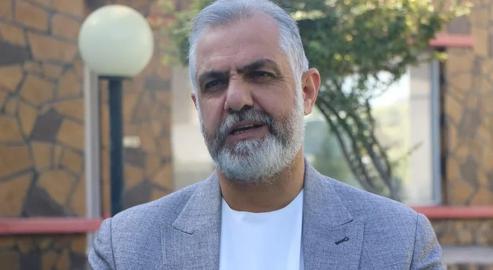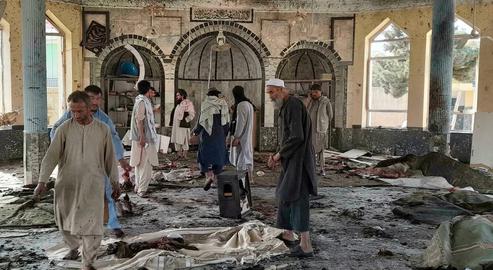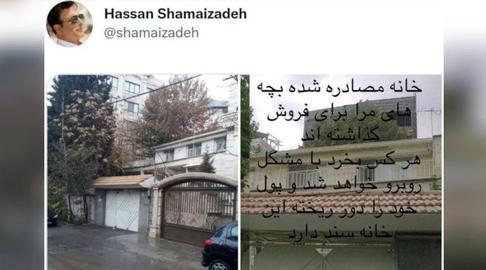Shiite mosques and gathering places in Afghanistan have always faced the threat of attack by extremist groups. Under the former government, military units were stationed at religious ceremonies and Friday prayers to protect them. Now under the Taliban, not only are these safeguards gone, but the new rulers have confiscated weapons and equipment from the Shiite mosques’ boards of trustees with which they might defend themselves.
In an interview with IranWire, Sirous Alaf, the head of Afghanistan's Shiite Coordinating Council, said Shiite mosques were now even more vulnerable to terror attacks from ISIS and others. He said if the Taliban did not let trustees take up arms in self-defense, the cost of this policy about-turn could be Shiite Muslims’ lives.
"We have raised this concern with local and senior officials in the Taliban’s Islamic Emirate," Alaf told IranWire. "If nothing is done to secure places of worship, there will be more attacks. When people gather for Friday prayers in the provinces, the mosques should be equipped with weapons by the Taliban. The former government’s auxiliary forces attended Friday prayers, but in the Taliban era, security forces are no longer present."
Already, Alaf said, some mosques had been looted by the Taliban. Another influential Shiite official told IranWire on the condition of anonymity that it was unclear what weapons had been confiscated, or how far the pillage had gone.
In October this year, two targeted bomb attacks on Shiite mosques in Kunduz and Kandahar killed dozens of worshippers and injured hundreds more. ISIS claimed responsibility for both, and the Taliban claimed to have arrested the perpetrators.
Now exposed and unable to defend themselves, many Afghan Shias have stopped or curtailed their visits to mosques out of fear. One Shia citizen, Mostafa, told IranWire: "Since the day those two horrific attacks took place, though we’re still going to the mosque, our mind is worried about the recurrence of that tragedy. That is, every second, instead of thinking about prayer, we think about the possibility of an explosion."
Recently a number of religious scholars as well as the heads of Herat's Shiite People's Councils met with Noor Ahmad Islamjar, the Taliban provincial governor, to discuss the security of both mosques and shrines. The Herat governor's office told IranWire that the Taliban had given them “assurances” Shia religious sites would be made secure.
Naeem al-Haq Haqqani, the Taliban's cultural director in Herat, told IranWire that in order for this to succeed local Shiites also needed to work with the Taliban: "The Islamic Emirate of Afghanistan considers itself obliged to guarantee the security of all citizens, and to prevent painful events. We will do our best to ensure the security of our brothers, and we will cooperate with their military personnel in this regard. There must be a system [in place] whereby people feel completely safe." He did not answer IranWire's follow-up question about the fate of the weapons seized by the Taliban.
The provinces of Kabul, Herat, Balkh, Kandahar and Nangarhar are Afghanistan's most populous, and where Taliban presence per capita is lowest. This could make it easier for ISIS and other extremist groups to carry out attacks in these areas. The fragile security situation in Afghanistan is leaving Shiites increasingly exposed to armed attacks and whatever the Taliban says, this is unlikely to be a priority for the government at this stage.
This article was written by a citizen journalist in Herat under a pseudonym.
Related coverage:
Displaced Afghan Families Selling Their Children to Keep Warm
Low Turnout and Tension for Afghan Shiites at First Ashura Under the Taliban
Smugglers Pushing Up Rates After Afghanistan's Fall to the Taliban
Iranian Consulate in Herat Hawking Black-Market Visas to Afghans
Afghan Ex-Servicewomen in Hiding After Female Police Officer's Murder
'Now We All Grow Poppies': Afghan Farmers Predict Roaring Opium Trade Under the Taliban
'I Don't Know How to Keep Broadcasting': Afghan Media Members in Despair as Colleagues Flee
Iran's Interior Ministry: Afghan Refugees Will be Turned Back at theBorder
visit the accountability section
In this section of Iran Wire, you can contact the officials and launch your campaign for various problems



























comments